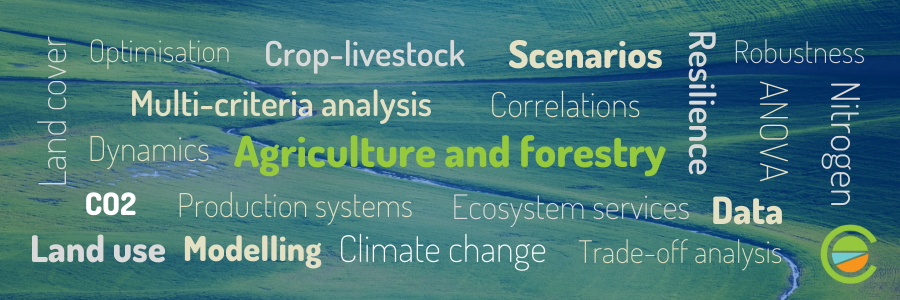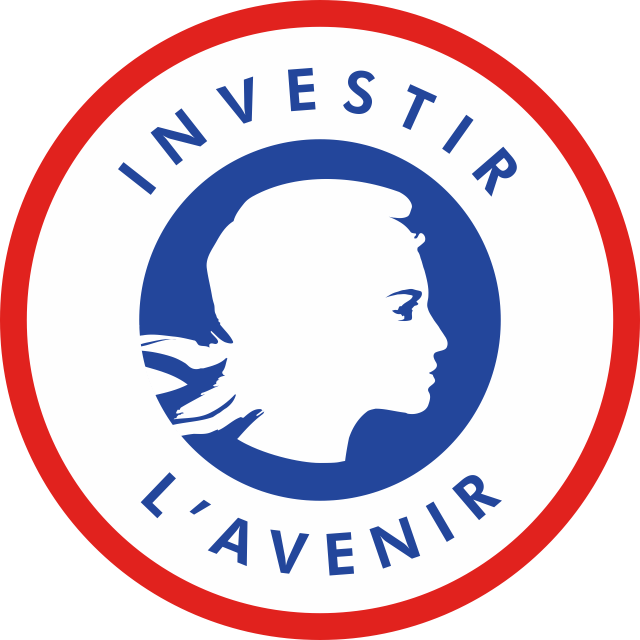CHALLENGE 2 - AGRICULTURE AND FORESTRY UNDER CLIMATE CHANGE
This challenge aims to understand the impacts of climate change on agricultural and forest production systems, and to identify solutions for increased resilience to extreme events. This challenge is organized into three research lines.

Research line 2.1: Effect of recent climate change on agricultural production
This research line focuses on past and future relationships between agricultural production changes and climate. In particular, we analyze the impact on crop yields of extreme events (e.g. droughts and heatwaves, excess of rainfall) based on yield time series, models and remote sensing data. In this research line, we also synthetize existing published results quantifying the effects of key climate factors (temperature, rainfall, CO2) on agricultural productions at large scales, with and without adaptation strategies. Our results are expected to contribute to foresight studies assessing climate change impacts on food, feed and biomass availability.
Research line 2.2: Optimizing food production systems under climate and environmental pressure
This research line aims at evaluating options for adapting food production systems to climate change, based on climate and socio-economic scenarios and on the results of RL2.1. Here, we model crop- livestock systems with the purpose of (i) simulating trajectories of agricultural production and environmental impacts under stressors and of (ii) perform a multi-objective optimization to analyze trade-offs and synergies between crop production, livestock production, ecosystem services, and minimization of environmental impacts (e.g., methane emissions). The scale addressed is the landscape and qualitative and quantitative inputs are provided to larger-scale agricultural models. The practices explored include changes in tillage and cropping systems, cultivar mixtures, integrated crop-livestock systems and agroforestry, change in livestock diet composition and agroecological approaches.
Research line 2.3: Optimizing forest management under climate pressure
This research line is about options for forest management that could reinforce the capacity to adapt forests to climate change while sustaining bioenergy and wood demand. In this research line, models of forest carbon-water-nitrogen cycling are used to explore how to improve the sustainability (i.e. resistance and resilience to climate extremes) of forests productivity in the context of climate change. We focus mostly, but not exclusively, on homogeneous stands because management strategies based on increasing stand heterogeneity (e.g., bolstering within-stand genetic variability) are currently difficult to test rigorously with well-validated models. Hence the main forestry options explored are (i) lowering tree density to reduce drought stress, (ii) planting genotypes / species with an improved resistance to heat and drought stress.

The activities of young CLand researchers within Challenge 2 on agriculture and forestry under climate change have led to targeted actions on the impact of agricultural and forestry practices on climate change. These different sub-projects achieved original results in 2019:
- Synthesis of the effect of climate change on crop yields to estimate global changes in crop yields.
- Applications of Machine Learning tools to predict the main agronomic, environmental and economic variables (Yuanyuan Huang's Postdoc).
- Expansion of our activities in the field of artificial intelligence and use of machine learning algorithms.
- Multi-criteria optimization of ecosystem services on a large scale (Yong Shi's Postdoc) and simulation and optimization of nitrogen flows on a small agricultural region scale (Corentin Pinsard's thesis).
- Limitation of the production of intensive plantations by geogenic nutrients (Yvan Cornut's thesis).
- Vulnerability of tropical forests to droughts and embolism and mortality processes (Yitong Yao's thesis).



